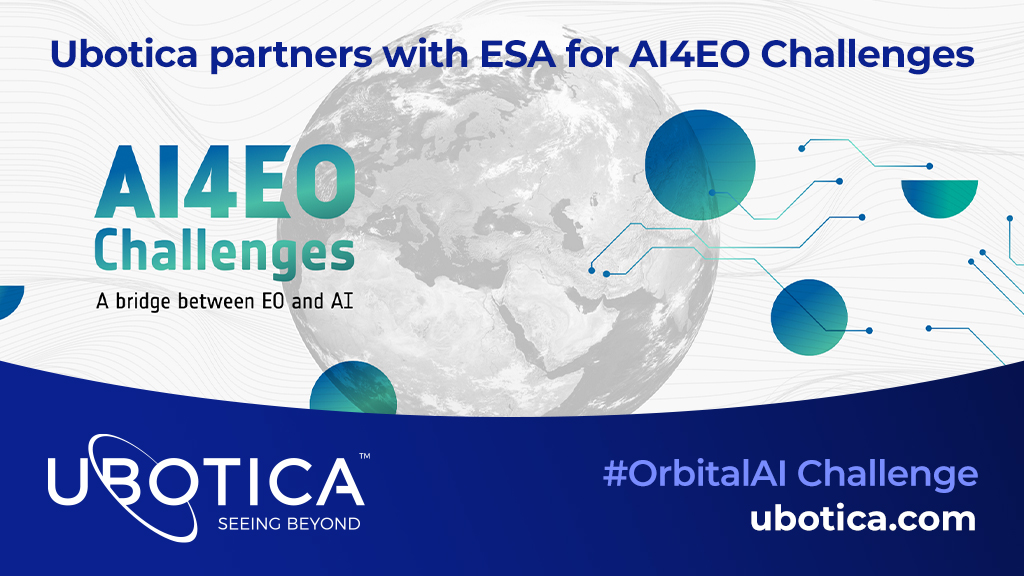Ubotica partners with ESA for AI4EO Challenges

#OrbitalAI Challenge
AI4EO Challenges, an initiative from Φ-lab of ESA’s Directorate of Earth Observation Programmes, strives to bring the worlds of AI and EO closer to encourage interaction and collaboration.
ESA’s next-generation Φsat-2 mission will deliver a platform for the in-flight uploading, deployment and updating of third-party AI models. This space mission is currently under development by a European Consortium led by Open Cosmos (UK), alongside CGI (Italy), Ubotica Technologies Ltd (Ireland), Ceiia (Portugal), KP Labs (Poland), Geo-K (Italy), Simera Innovate GmbH (Switzerland), and Deimos (Spain). In parallel, Microsoft and Thales Alenia Space will demonstrate and validate in-orbit computing technologies and potentialities onboard the International Space Station (ISS) for the mission named IMAGIN-e (ISS Mounted Accessible Global Imaging Nod-e).
ESA’s vision for edge computing in space is to foster an ecosystem of Earth observation applications. This challenge is designed to align with this goal and is open to a global audience of space, EO, and AI enthusiasts. It’s a once-in-a-lifetime opportunity for the global community to explore the potential of in-orbit data processing and contribute to the advancement of Earth’s sustainability.
Aubrey Dunne, Co-Founder & CTO at Ubotica, said: “The Ubotica team are pleased to be part of this exciting challenge which will explore the cutting-edge possibilities of in-orbit data processing and its potential to drive progress in Earth’s sustainability, business, industry, and science.”
AI and Earth observation players, researchers, experts, and scientists from all around the world can participate in any of these two tracks:
- ESA Φ-sat-2 track: 6U CubeSat orbiting Earth at 500 km with a multispectral camera in a sun-synchronous orbit.
- IMAGIN-e track (ISS Mounted Accessible Global Imaging Nod-e, in collaboration with Microsoft and Thales Alenia Space): featuring a hyperspectral camera on the ISS.
For more on the AI Orbital Challenge check out this ESA webpage.
